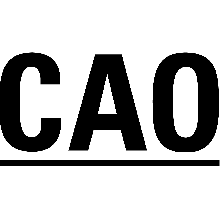CAO Guide Book 2023 | How to Decide Your Career
CAO Guide Book 2023 PDF Download | How to Decide Your Career.
HELP! Click here for ‘Study Options for Me’ – Enter your CAO number, ID number or Results to see what programmes you may qualify for at our member institutions.
DECIDING ON YOUR CAREER
Choosing your career and programme of study is probably the biggest decision you have faced in your life so far. We try in this handbook to help you make an informed decision, but you should also make use of other resources such as career resource centres, guidance counsellors, libraries, local newspapers, TV and the internet if you have access to them.
It is important that you choose a career that will help you achieve the sort of lifestyle you want as well as match your working personality. Answering the following questions might help you get a clearer picture of what type of career would be right for you.
| Ask yourself ? |
Does this career offer the sort of challenges and rewards I need?
People work for different reasons. Some work best when they are well paid; others are more stimulated by a challenge than by money. Some like a feeling of importance; others are inspired by the gratitude of people they have helped. Some get a kick out of creating something. It may help you if you write down your answers to the following questions:
What values and ambitions do you have?
Think back to when you did some work you were really pleased with – what encouraged you to do your best?
Do you perform at your best when you stand to gain a reward or money, or when you are doing what you enjoy?
What are the things that are important to you as a person?
Will this career suit the sort of lifestyle I want?
Once you have identified some careers that interest you, it is always a good idea to talk to people who are already doing the job. Ask them how hard they had to study and what sort of demands their job makes on them; find out what they like and dislike about it. That way you will be able to determine whether the career you are considering will fit into your chosen lifestyle. Check job advertisements in the newspapers to find out how many openings there are for people who are just starting out. These will also give you an idea of what salaries are paid for the jobs you are considering, but remember that it will take you several years before you start earning a top salary.
What am I good at?
Many, many more subjects are offered at tertiary level than at school – so how can you work out what you are likely to be good at? Most subjects will build on knowledge and skills you have already been developing at school; for instance, if you study Engineering you will make extensive use of what you learnt at school in Maths and Science. If your best subjects at school are languages or those involving essay writing, you should consider a programme that will further develop those skills.
If you are best at practical things, consider studying at an FET College where these skills will be developed.
Don’t be restricted to the subjects you are best at in school, but use them to guide you in identifying your personal strengths.
Do I qualify?
Check the entry requirements carefully, and only apply for programmes you are likely to qualify for. For example, if a programme specific es Maths at level 3 (or Higher Grade E) you definitely will not be considered if you are writing Maths Literacy (or have written Maths on Standard Grade). If your results are better than the minimum specified, the institution will be delighted to consider your application.
Check out all the different options very carefully. Different institutions have different entry requirements for similar programmes.
There are alternative access routes to many of the programmes listed. Access programmes are designed to assist those from disadvantaged schools who do not meet the entry requirements. You will find full details in `Alternative access routes’
If you are over 23 years old and do not meet the entry requirements, please contact the institution to check whether they have a Mature Age entry route.
How long am I prepared to study?
Each programme in this handbook shows the minimum time it takes to complete that qualification. Remember that a lot of people take longer than this. Programmes range in minimum duration from six months to six years.
Diploma programmes sometimes allow you to leave with a qualification such as a National Certificate or National Higher Certificate after one or two years, and offer the opportunity of returning to study and completing a more senior qualification later.
Can I afford it?
Many students depend heavily on financial aid – remember that you should apply in plenty of time, particularly if you are looking for external bursaries. Very few students find funding that will cover the whole cost of study. Most funding is in the form of loans.
For details of bursary donors consult Umsobomvu Youth Fund’s website www.uyf.org.za. Or consult the annual publication The Bursary Register, available from educational book stores or by contacting telephone number 011 672 6559, email address slevin@mweb.co.za or PO Box 178, Florida Hills, 1716 (purchase price approximately R200). Consult your library or the Financial Aid office of an institution (see pages 22-24). Bursaries are often advertised in the jobs section of newspapers.
Remember that part-time or distance learning options are considerably cheaper and can be combined with a job so that you can earn while you learn.
To decide whether you can afford it, you should estimate the cost of the programme you are considering. Approximate costs are available from the institutions. Fill in your estimated costs on the study budget calculator below and add them all up.
